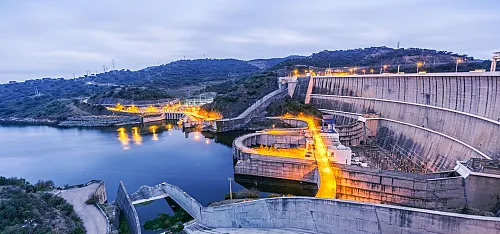01.03.2012
ECJ judgment analyses what rules apply to a cartel with effects within a Member State prior to its accession
A ruling by the European Court of Justice (Grand Chamber) of 14 February 2012, in a referral for a preliminary ruling by a Czech court1, has decided that national competition rules may apply to anticompetitive practices with effects in a Member State prior to its accession to the European Union (EU). This, despite the fact that the same infringement (a worldwide cartel between European and Japanese companies) was also punished, under Article 101 of the Treaty (TFEU), by the European Commission.
The case refers to a cartel in gas insulated switchgear to which the Commission imposed fines totalling EUR 750 million in 20072.
The Commission initiated proceedings in April 2006 and adopted a final decision in January 2007. Meanwhile, the Czech competition authority initiated proceedings in August 2006 and came to a final decision in April 2007, also fining some of the undertakings already targeted by the Commission. However, the national authority only considered the cartel’s effects in the territory of the Czech Republic prior to 1 May 2004, date of its accession to the EU.
Some of the undertakings affected by this second decision challenged the fines applied by the Czech authority arguing that its powers were barred (as the Commission had initiated proceedings first) and that its decision did not comply with the ne bis in idem principle, as they were fined once again for an infringement which the Commission had already punished (although not on exactly the same terms).
On these questions, the Court of Justice began by clarifying that Article 101 of the TFEU, as well as Article 3 (1) of Regulation (EC) No 1/2003 (both rules of a substantive nature), cannot apply retroactively «irrespective of whether such application might produce favourable or unfavourable effects for the persons concerned)) (par. 50). As such, these provisions do not apply to a cartel whose effects in the territory of a Member State occur prior to its accession to the EU.
As for the delimitation of competition powers between the national authorities and the Commission, the ECJ confirmed that initiation of proceedings by the Commission results in the national authorities losing their power to apply, vis-à-vis the same conduct, not only Article 101 TFEU but also national competition law (Article 11 (6) of Regulation (EC) No 1/2003). However, the Court considered that that circumstance does not «permanently and definitively [remove] the national competition authorities’ power to apply national legislation on competition matters)) and that said power «is restored once the proceeding initiated by the Commission is concluded)) (paragraphs 79/80). Consequently, it held that, in this case, the Czech competition authority had the power to apply its national law to the cartel’s anticompetitive effects within its territory prior to accession to the EU.
Lastly, the Court denied that the coexistence of two decisions to impose fines implied a violation of the ne bis in idem principle given, inter alia, that the facts covered by either decision were not identical (both as to the affected territory and the relevant timeframe). The European Commission only covered the cartel’s effects within the European Community and the European Economic Area, and did not take account, in calculating the fines, the Member States that acceded to the Union on 1 May 2004. The Czech authority, in contrast, only fined the cartel’s effects occurring within its territory before that date and, to that extent, there was no overlap between both decisions.
This distinction between the facts underlying either decision appears somewhat artificial, however, given that, as to its geographic scope, the Commission qualified the infringement as a worldwide cartel and, as to the relevant timeframe, it concluded that a continuous infringement had taken place which only ceased on 11 May 2004 (after the Czech Republic’s accession to the European Union).
This article was written by lawyer Gonçalo Machado Borges.

_______________________
1 Case C-17/10 – Toshiba Corporation et al. v. Urad pro ochranu hospodarske souteze.
2 Case COMP/F/38.899 – C(2006) final, of 24.01.2007.


